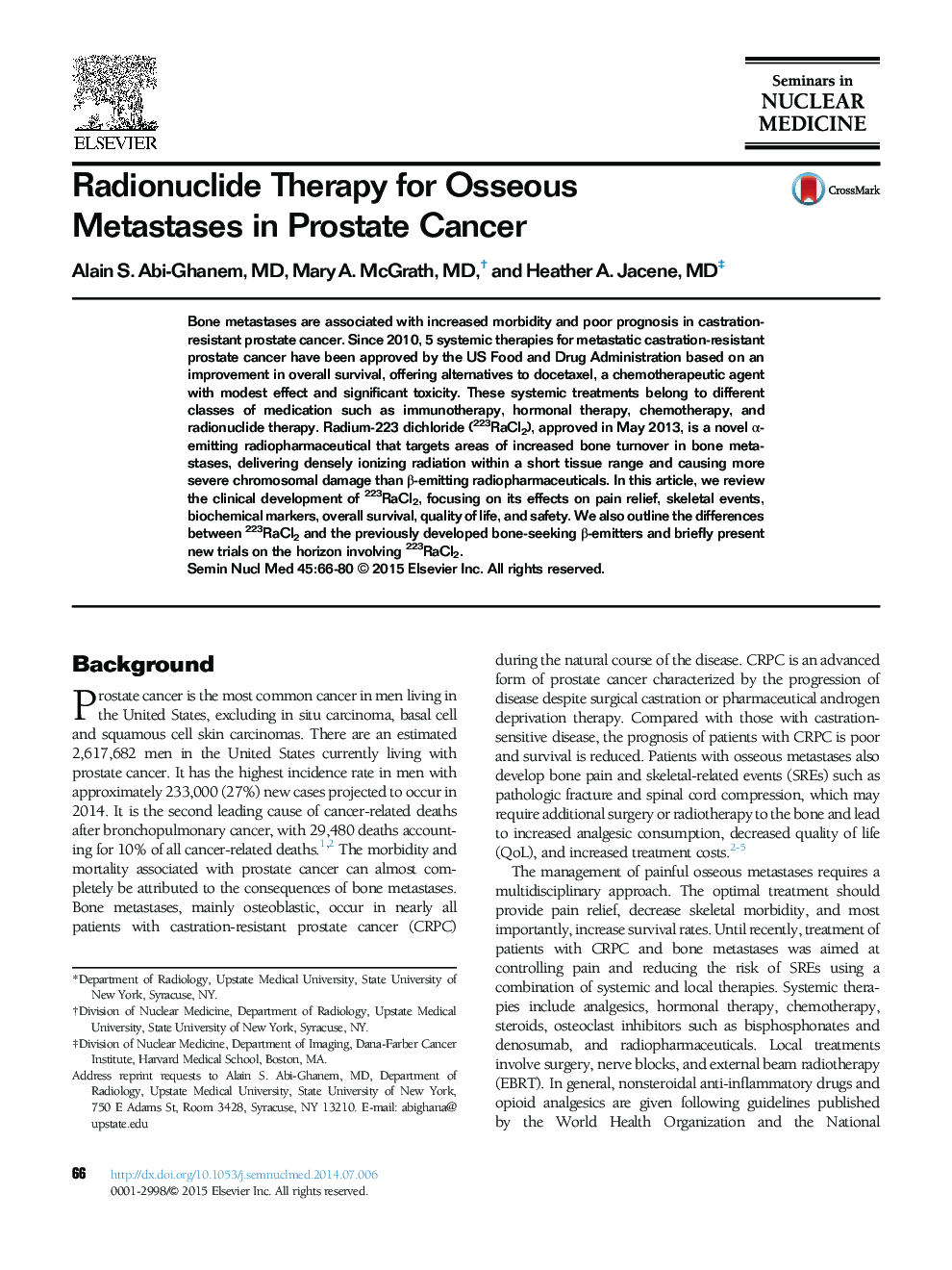| Article ID | Journal | Published Year | Pages | File Type |
|---|---|---|---|---|
| 4250867 | Seminars in Nuclear Medicine | 2015 | 15 Pages |
Bone metastases are associated with increased morbidity and poor prognosis in castration-resistant prostate cancer. Since 2010, 5 systemic therapies for metastatic castration-resistant prostate cancer have been approved by the US Food and Drug Administration based on an improvement in overall survival, offering alternatives to docetaxel, a chemotherapeutic agent with modest effect and significant toxicity. These systemic treatments belong to different classes of medication such as immunotherapy, hormonal therapy, chemotherapy, and radionuclide therapy. Radium-223 dichloride (223RaCl2), approved in May 2013, is a novel α-emitting radiopharmaceutical that targets areas of increased bone turnover in bone metastases, delivering densely ionizing radiation within a short tissue range and causing more severe chromosomal damage than β-emitting radiopharmaceuticals. In this article, we review the clinical development of 223RaCl2, focusing on its effects on pain relief, skeletal events, biochemical markers, overall survival, quality of life, and safety. We also outline the differences between 223RaCl2 and the previously developed bone-seeking β-emitters and briefly present new trials on the horizon involving 223RaCl2.
